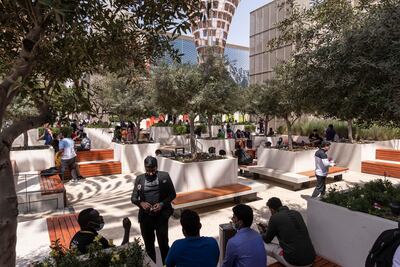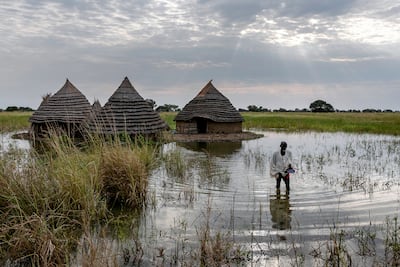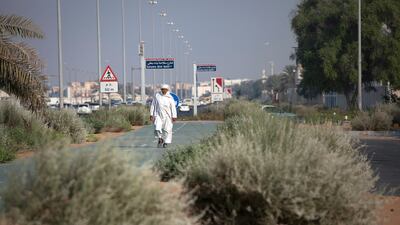For more than a decade, the Petersberg Climate Dialogue (PCD) has provided a stage to strengthen trust between states in multilateral climate negotiations. That trust runs in three directions.
Trust that the Cop presidency and its parties are plugged into, and prioritising, the most critical issues on the climate agenda. Trust that the international community can reach a consensus on implementing commitments and pledges. And trust that climate leaders will match the rhetoric of the negotiations text to their actions in the real world, and deliver a viable pathway to net zero and a sustainable future.
On this, the UAE is in a strong position to deliver on the crucial metrics of the climate trust barometer.
In his address to the parties gathered in Berlin for this year’s PCD, Dr Sultan Al Jaber, President-designate of the Cop28 summit, acknowledged that “Expectations are high. Trust is low,” while delivering a clear, pertinent message that collaboration and determination are needed across the international community to ensure that Cop28 delivers “transformational results”.

This is precisely the opportunity that we have at hand with Cop28 – the year of the first global stocktake since the Paris Agreement. The UAE can demonstrate its commitment to transformative global climate action by demonstrating the possibilities of a post-hydrocarbon-reliant economy, and outlining the bold steps that can take us there.
Finding common ground across the factions in the climate space it essential. By coming together, we can deliver impactful climate action and sustainable economic development – they are not mutually exclusive.
Addressing the most urgent climate challenges and opportunities – such as the energy transition – goes hand in hand with sustainable economic growth, especially for those in the most vulnerable communities.

Today, the world’s least developed economies comprise more than half the world’s population. They contribute just 12 per cent of global emissions. And yet, they find themselves on the frontlines of the changing climate, most vulnerable to erratic weather patterns, and the most likely to be displaced by extreme weather events. At the same time, more than 770 million people have no access to electricity.
The link between human health, economic opportunity and energy access is critical in energy transition and broader climate action. It is a link that Cop28 is setting out to address head on. Indeed, Cop28 UAE will be the first Cop with a day dedicated to health – with the first health and climate ministerial, scheduled for the first day of the conference’s programming and after the World Climate Action Summit.
Delivering outcomes and results across each of the thematic days at Cop28, as well as the negotiated text that will form the content of the Cop28 Agreement, hinges on our ability to build consensus and bring all stakeholders around the table to design an inclusive, comprehensive roadmap for a sustainable future.
In this regard, the UAE’s credentials and its convening power speak for themselves. As home of the International Renewable Energy Agency (Irena), the UAE is a recognised bridge builder – a responsible and trusted partner to countries between East and West, Global South and Global North. This places the country in an ideal position to foster consensus on climate diplomacy and progress.
As the Cop28 presidency has emphasised, partnerships will be key to climate progress. We saw the UAE’s ability to forge impactful partnerships in action at the first-ever Climate Tech Forum last week in Abu Dhabi, where Irena and Masdar signed an agreement to set a roadmap to triple global renewable energy capacity by 2030.
The two entities will collaborate to establish a global baseline for renewable energy, with a focus on solar, wind, hydropower, geothermal and other technologies, including battery storage. These will be complemented by region-specific data to ensure continued and swift progress in renewable capacity.
In the 17 years since the UAE leadership established Masdar, the cost of a kilowatt hour of solar energy in 2006 has fallen to under 2 cents. We need to double down on the tenets of innovation and collaboration that have brought us to this point, so we can bring costs down further, lower barriers to entry and improve energy access.
This approach of innovative collaboration and pioneering partnerships aligns with the approach we are seeing in the lead up to Cop28, which underscores the power of partnerships, invests in inclusivity and demands delivery. It is an approach that recognises immense opportunity in the face of adversity. And it is one that is predicated on unity and ending polarity.
With these principles in place, Cop28 can seize the moment, and turn an inflection point for trust in the climate process into a turning point for unified climate action.


